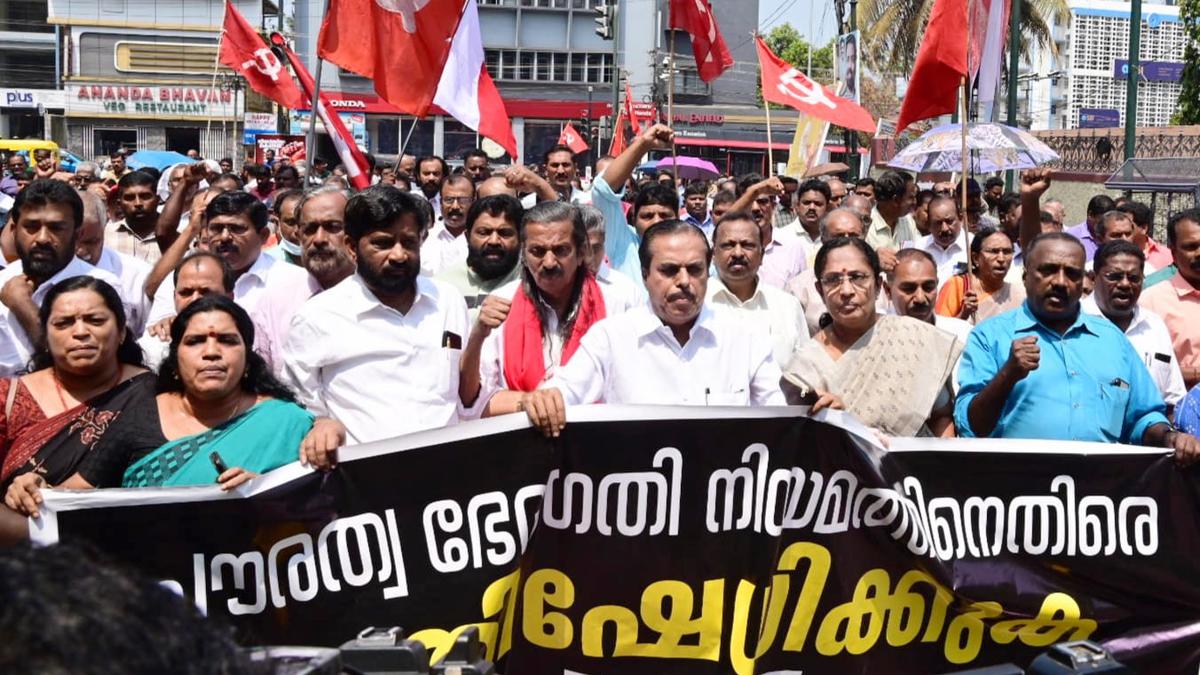
Centre’s framing of CAA Rules animates Kerala politics and reforges State’s Lok Sabha election narratives
The Hindu
The Central government’s recent framing of rules to enforce the contentious Citizenship Amendment Act (CAA) has animated Kerala politics ahead of what portends to be a bitterly contested Lok Sabha elections.
The Central government’s recent framing of rules to enforce the contentious Citizenship Amendment Act (CAA) has animated Kerala politics ahead of what portends to be a bitterly contested Lok Sabha elections.
The ramifications of the Centre’s move to fast-track CAA’s implementation have rippled across Kerala’s socio-cultural and political spectrum and reforged the election narratives of the opposing fronts.
The Congress and the Communist Party of India (Marxist) [CPI(M)] seemed to vie with each other to tap into the growing social fear that the CAA was patently ‘anti-Muslim, ran against the grain of the Constitution and was a precursor to creating a Hindu majoritarian polity.’
The CAA’s enforcement has also compelled both parties to resurrect the schismatic and strident debate over the criminalisation of triple talaq, the potential drafting of a Uniform Civil Code (UCC), and abrogation of the special status of Jammu and Kashmir, the sole Muslim-majority State in the Union, as significant election talking points to retard Prime Minister Narendra Modi’s strong electoral foray into Kerala.
The Bharatiya Janata Party (BJP) has dismissed the Congress-CPI(M) narrative as misleading and aimed at rendering the Muslim community insecure.
BJP Kerala State president K. Surendran told reporters in Kochi on March 12 (Tuesday) that the 2019 enactment merely offered “a safe harbour” for six minority communities facing persecution in Pakistan, Bangladesh and Afghanistan by welcoming them as Indian citizens.
“The CAA does not aim to disenfranchise any Indian citizen. The Congress and the CPI(M) are playing vote-bank politics by spreading lies”, he said.











